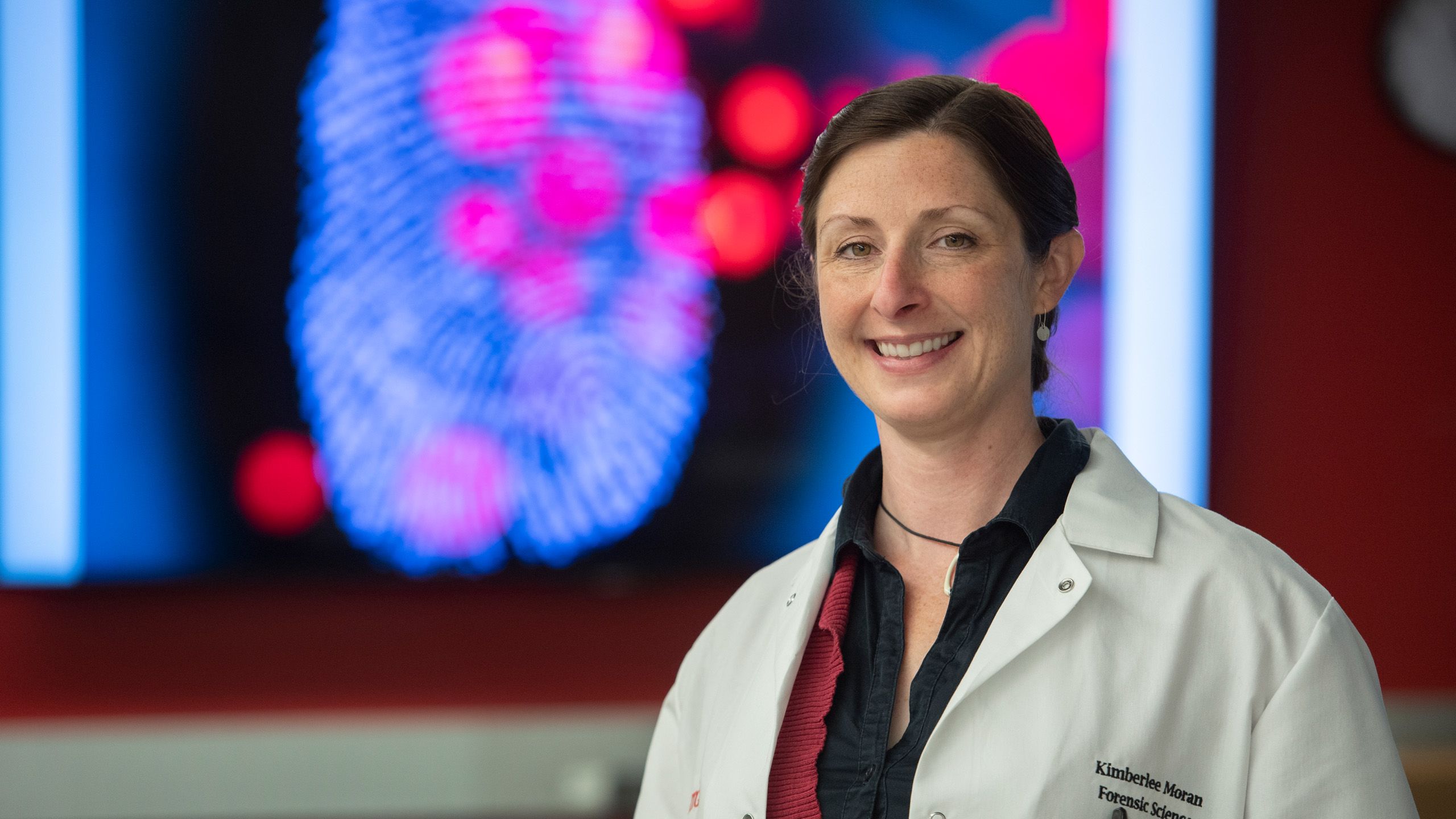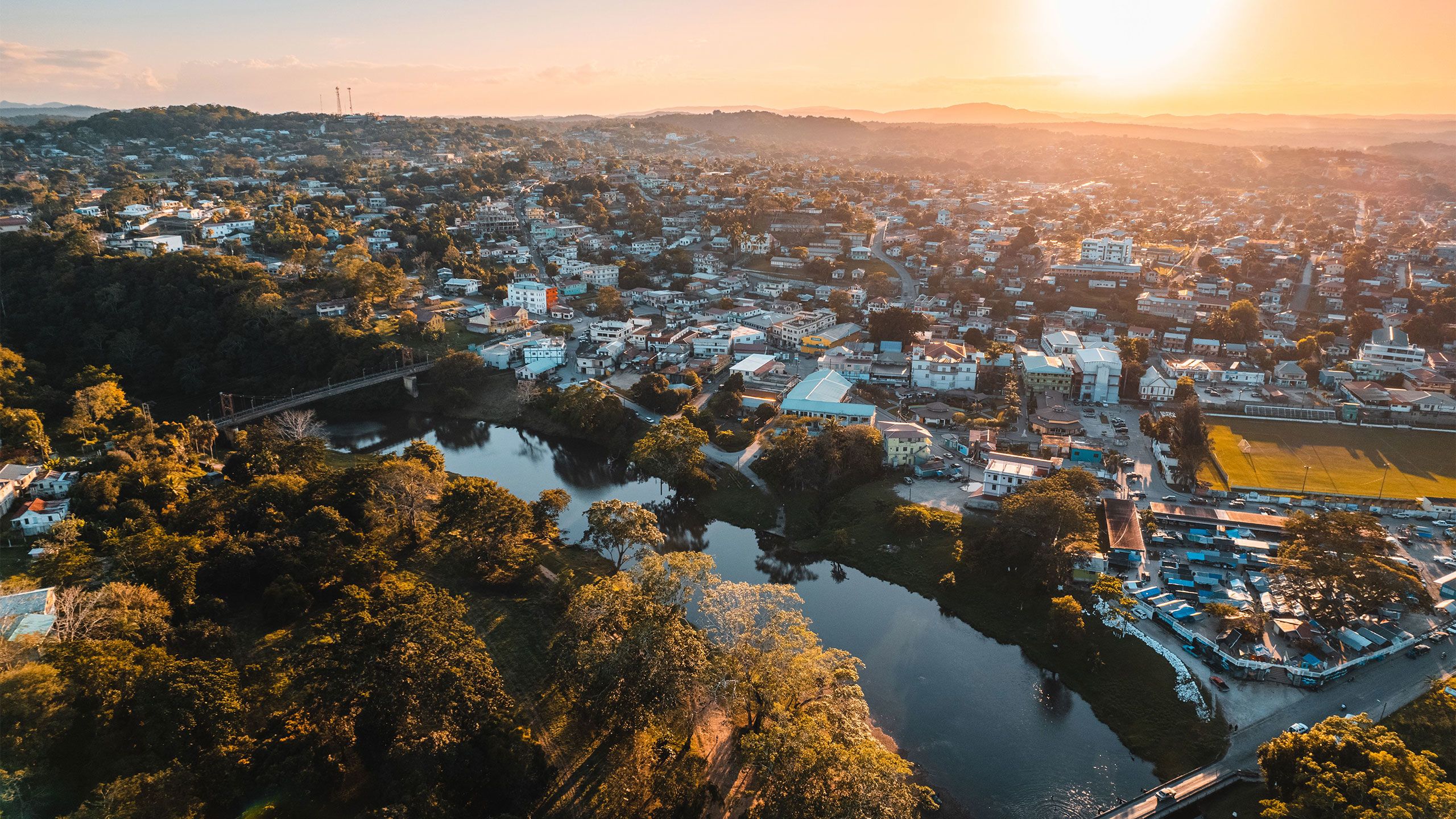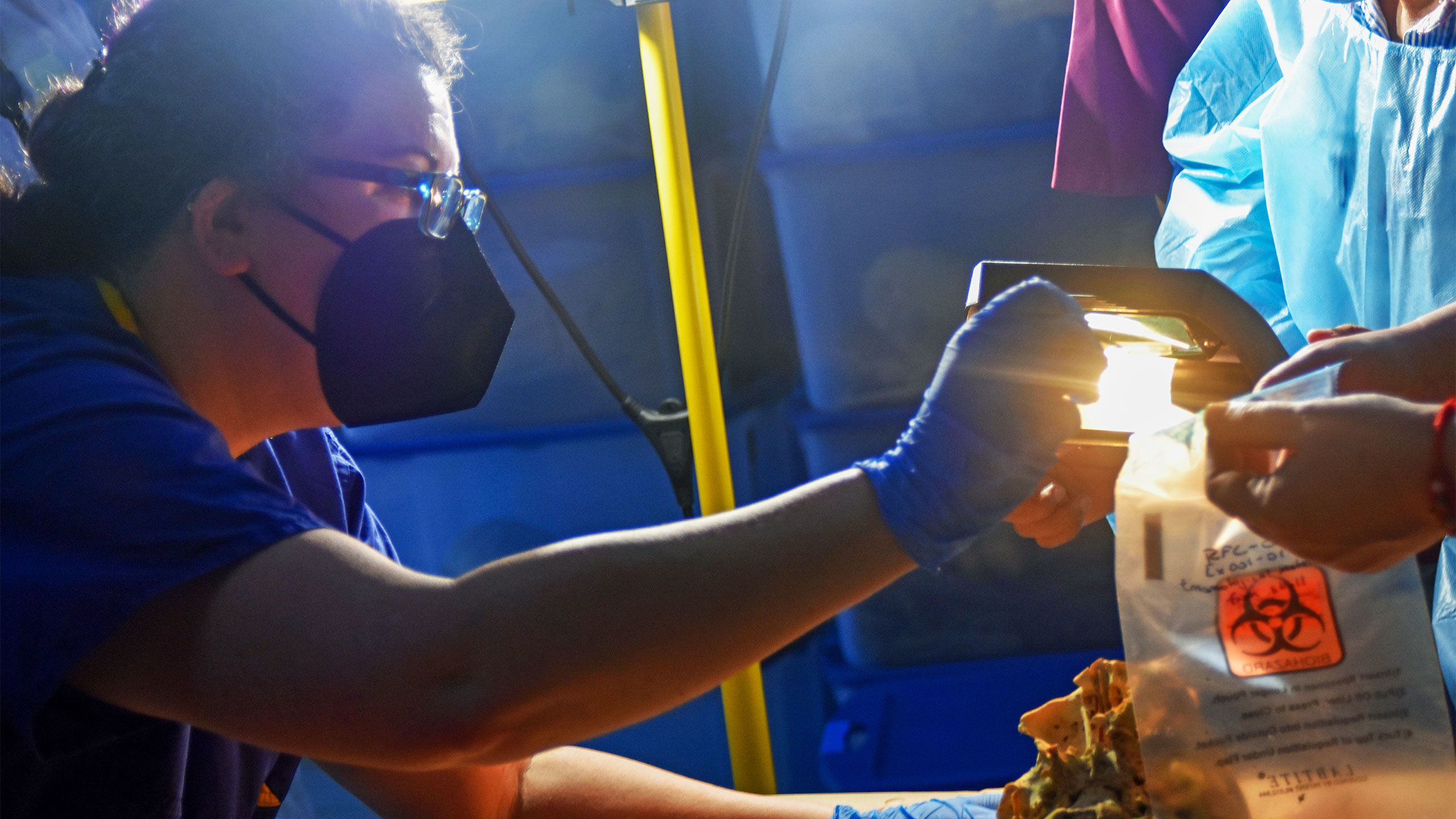Forensic Files
Researcher uses Fulbright Grant to investigate unsolved mysteries in Belize

Television shows like “Forensic Files,” “CSI,” and “The First 48” have inspired an entire generation to become fascinated with everything from DNA to fingerprints. Rutgers University in Camden forensic scientist Kimberlee Moran became a nationally recognized expert in physical evidence long before the current boom in the popularity of true crime stories, and she's now taken her expertise international. Moran traveled to Belize in early January on a Fulbright Specialist grant – one of only 400 scholars nationwide to earn the distinction – to help lead the newly formed Rutgers Forensic Consortium in the identification of 17 sets of skeletal remains that had accumulated over the years in various police stations throughout the country. Moran’s trip was part of the group’s larger effort to provide support and training for Belize’s National Forensic Science Service (NFSS).

Experts from the Rutgers Forensic Consortium (RFC) investigated skeletal remains uncovered in Belize (photo by Nikki Johnson)
Experts from the Rutgers Forensic Consortium (RFC) investigated skeletal remains uncovered in Belize (photo by Nikki Johnson)
“It was an incredible opportunity and a chance to learn from another national context,” said Moran, director of forensics and a teaching professor in the College of Arts and Sciences, who was chosen for the Fulbright for her academic and professional achievement, demonstrated leadership, and potential to foster long-term collaborations. “Belize is doing many interesting and exciting things within their lab and scenes of crime unit.”
According to Moran, the skeletal identifications required the forensic scientists to create a biological profile for each set, looking at various markers to determine the person’s sex, age at death, their stature, and any indications of their lifestyle.
“For instance, did they have a broken bone that had healed, or did they ever have dental work?” Moran asked.
However, Moran notes, the scientists can only collect so much data. It is up to relatives of missing loved ones to come forward to provide researchers with lifestyle information.
“Someone can say, ‘I had an aunt who went missing. This is what I know about her,’” she said.
Moran noted that the group successfully analyzed all 17 cases, some which had sat since the 1990s. The project allowed them to create a new data collection form and test it in real time.






The Rutgers Forensic Consortium (RFC): Dr. Lisa Monetti, Dr. Marianne Hamel, Dr. Hillary Delprete, Anna Dhody, Dr. Denise Gemmellaro, Dr. Jillian Conte, Bobbi Brooks, Nikki Johnson, and Kimberlee Moran. (Photo by Nikki Johnson)
The Rutgers Forensic Consortium (RFC): Dr. Lisa Monetti, Dr. Marianne Hamel, Dr. Hillary Delprete, Anna Dhody, Dr. Denise Gemmellaro, Dr. Jillian Conte, Bobbi Brooks, Nikki Johnson, and Kimberlee Moran. (Photo by Nikki Johnson)

(Photo by Nikki Johnson)
(Photo by Nikki Johnson)

(Photo by Nikki Johnson)
(Photo by Nikki Johnson)

(Photo by Nikki Johnson)
(Photo by Nikki Johnson)
The researchers also provided the NFSS with forensic science training, including teaching civilian crime scene officers how to recover human remains and training police officers how to work with these crime scene officers. The consortium members also provided mentorship for NFSS personnel and conducted public outreach through a series of local media appearances. In addition, they visited Galen University to explore research and teaching collaborations, and had an “impactful” debriefing meeting with Hon Kareem Musa, Belize’s Minster for Home Affairs and New Growth Industries, who oversees the NFSS.
“We were able to share with him our observations and our recommendations, which seemed to further his commitment to the NFSS,” Moran said.

Moran and the Rutgers Forensic Consortium present at Galen University. (Photo by Nikki Johnson)
Moran and the Rutgers Forensic Consortium present at Galen University. (Photo by Nikki Johnson)
Moran said that one of the most important aspects of the project was establishing the consortium of forensic science experts, with each one bringing their own unique skillsets to the network. This has allowed the researchers to conduct comprehensive needs assessments for their work. She noted that she intentionally formed the team around colleagues from the greater Philadelphia region, so they are geographically close enough to one another to continue collaboration in the future. “It was wonderful to see how seamlessly the team settled in and worked so well together,” Moran said.

Moran said that there is still much work to do in Belize, and she hopes to return with the Rutgers Forensic Science Consortium soon. Among the projects they’d like to explore is a geospatial technology map of burial locations and the creation of soil and entomological databases. The group also hopes to revisit Galen University, with Moran’s hope that the trip was just the beginning of a long-term partnership.

Creative Design: Karaamat Abdullah
Photography: Nikki Johnson